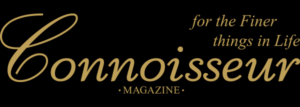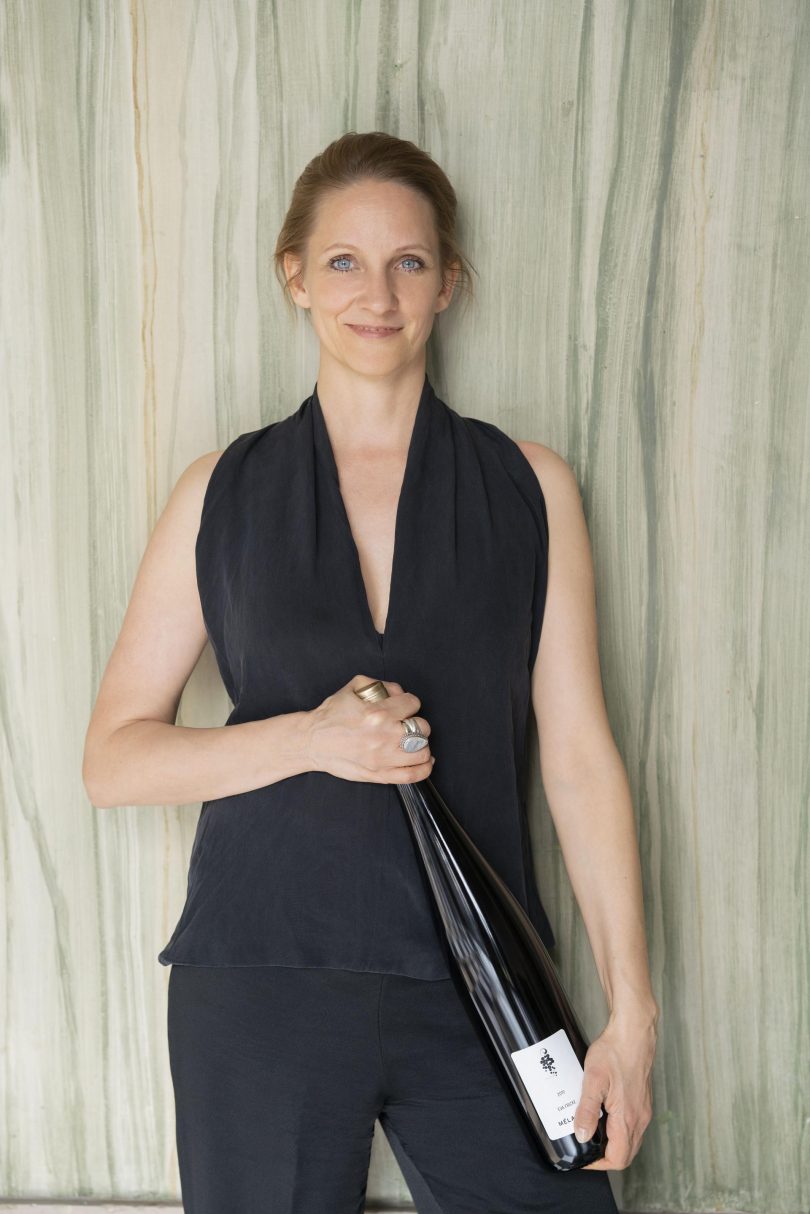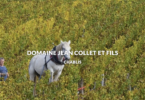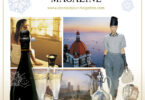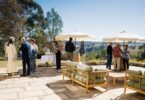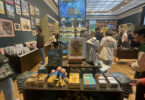About DOMAINE EVA FRICKE
It is a rather unusual story that describes Eva Fricke’s journey to wine. Firstly, she has no family connection to viticulture; her parents are doctors. Secondly, she does not come from a wine region, but from the North of Germany. However, more than 20 years ago the Bremen native found her home in the Rheingau and embarked on an impressive path that eventually led to her own start-up winery in 2011.
Today Eva Fricke runs a 17-hectare domaine with tasting room in Eltville. Among her customers are international award-winning chefs and luxury hotels such as Das Kronenschlösschen in Hattenheim, Lafleur in Frankfurt, Fontenay in Hamburg, Dallmayr in Munich, Johannes King on Sylt, Esszimmer in the BWM Welt Munich, Restaurant Haubentaucher in Rottach-Egern, Søllerød Kro and Alchemist in Denmark, the Steirereck in Vienna, Leroy and Clove Club London, Atomix and Daniel New York, Atelier Crenn and Single Thread Farms San Francisco, the Park Hyatt in Beijing, W-Hotel Shanghai and Sühring Bangkok, as well as the Norwegian royal family, to name but a few.
Reviews have also been enthusiastic: In 2013, the Domaine Eva Fricke was voted “Newcomer of the Year” by gourmet magazine Falstaff. The international wine magazine “Fine” named it “Best StartUp” in its edition “New Generation — The 111 Best Young German Winemakers”. The Frankfurter Allgemeine Zeitung awarded Eva Fricke the 2015 title of “Winemaker Rising Star of the Year”, while Stuart Pigott chose her as “Riesling Heroine 2016”. In 2017, the Feinschmecker magazine named the Domaine Eva Fricke a “2017/18 Aufsteiger”.
Since 2019 it has been ranking the business among the 3 top wineries in the Rheingau and the 21 best in Germany — with its highest rating of 5F. In 2020 the Domaine Eva Fricke achieved a triple accolade, when both Robert Parker and James Suckling awarded 100 points for the 2019 Lorcher Krone TBA, and the 2019 Lorcher Krone dry also received the critics’ top rating of 100 points from James Suckling.
“Not only was this the first time in the history of the Rheingau that a wine had been awarded 100 Parker points, but Eva Fricke is also the first female winemaker in Germany to achieve this highest score. Remarkable is that the awarded wines came from a nearly forgotten vineyard site in the very north of the region: the Lorcher Krone, Eva’s first ever vineyard.”
Most recently, Eva Fricke wines from Lorch achieved top prices at a Sotheby’s auction in September 2021, where the Lorcher Krone TBA auctioned for 4380€/0.375L. In the same year Eva was awarded second place in the World’s Best Rising Star category at the Golden Vines Awards 2021.
Working by hand in harmony with nature The cultivation and vinification of Eva Fricke wines are based on a holistic concept. This is particularly evident in the vineyard management. Manual work on the vines, which are up to 70 years old, is indispensable, as half of the vineyards are on steep slopes of more than 44 degrees. In the cellar the wines are given plenty of time for their individual development. Both the natural features of the vineyard and the natural influences during the growing season come to the fore in Eva Fricke’s wines.
For this very reason, the vinification is decided on an individual basis each year and not based on predefined analytical parameters. From the beginning in 2006 Eva Fricke has worked without the use of herbicides and pesticides. Since 2011 all wine production follows organic principles. In July 2016 the Domaine Eva Fricke started the EU organic certification process and has since been awarded organic certification. Since 2017 all purchased grapes also come from organically certified and trusted growers in the region. Since 2017 the business has been registered with the “Vegan Society”. In the same year the team started using biodynamic applications, which continue to be explored and developed. All viticultural and replanting projects are carried out in cooperation with the nature conservation authorities. The recultivation of old vineyard sites as well as the preservation of the historically significant cultural landscape of the UNESCO World Heritage Site “Upper Middle Rhine Valley” with its nature reserves and bird sanctuaries are a fundamental part of the philosophy. In 2019 the first vines from Eva Fricke’s own Selection Massale project were planted in Eltville and Lorch.
Portfolio: First-class Rieslings from the best Rheingau sites Eva Fricke’s portfolio consists of 98 percent Rieslings which impress with their diversity. This is due to the different vineyard sites, which are situated in two contrasting geographical regions of the Rheingau. The vineyards in the upper Rheingau around Kiedrich and Eltville grow on loess/loam and clay soils and produce juicy, fruity Rieslings. On the other hand, the northernmost Rheingau vineyards of Lorch and Lorchhausen, which geologically and climatically could already be considered part of the Middle Rhine wine-growing region, produce exceptionally elegant and delicate wines. Their slate and quartzite soils provide mineral, almost salty notes. Furthermore, due to the soil structure and old vines their yields are naturally limited. Eva Fricke’s focus is on the Lorch vineyards, which she basically rescued from oblivion in 2005. The effort has paid off as the appraisal of the “Lorchhäuser Seligmacher” by top international restaurants and a new appreciation of the historical site show. The fact that well-known winegrowers from the whole Rheingau now seek plots in the previously forgotten sites clearly proves Eva’s nose for quality.
Eva Fricke: A compelling journey with impressive stations Had you asked Eva Fricke 30 years ago about her career aspiration, the answer would have been “brewer”. However, shortly before graduating from high school she completed internships at wineries on the Nahe and in Cape Town, South Africa, where her interest in wine was established. She went on to study viticulture and oenology at the prestigious Geisenheim University of Applied Sciences and completed internships at the winery of Château Cissac in Haut-Médoc, France, at Schloss Johannisberg in the Rheingau, at Castello di Verduno in Italy, at Dominio de Pingus in Ribera del Duero, Spain, and at Pepper Tree winery in the Hunter Valley, Australia. After graduating with a degree in engineering Eva went back to Pingus in Spain and then on to Tatachilla, McLaren Vale, in South Australia. Back in Germany she briefly worked at the J.B. Becker winery in Walluf and then at the Leitz winery in Ruedesheim from 2004, first as vineyard manager and later as technical director. During this time, she completed an intensive extra-occupational course at the European Business School in Oestrich-Winkel and thus laid the foundation for realising her dream of starting her own winery. In 2006 she produced her first own wine in a rented cellar while still working full-time at Leitz; 600l from only 0.24 ha of her first Krone vineyard. Bit by bit, she stocked up on farming and cellar equipment until she was finally able to make wine independently from 2010.
The present Since September 2011 Eva Fricke has been running her own winery full-time and the business is growing steadily. In the summer of 2015, the Domaine Eva Fricke moved to Eltville and now has its own tasting room. In 2022 a total of 17 ha vineyards are being cultivated, of which 15.5 ha are in yield and 1.5 ha are young vineyards, new plantings and fallow land. Since 2019 this includes the cultivation of 2 ha of the original vineyard sites which belong to the historic Rheingau legend, Domäne Schloss Eltz. They are being converted to organic farming and expect their first certified vintage in 2022. The first release of Eva’s interpretation of this once so famous Rheingau jewel is planned for 2023/24. In the summer of 2019, a temperature-controlled wine storage facility was added to the production site in Eltville, directly adjacent to the office and tasting room. This means improved production and storage conditions and is an important step towards an even more sustainable operational infrastructure and CO2 balance.
